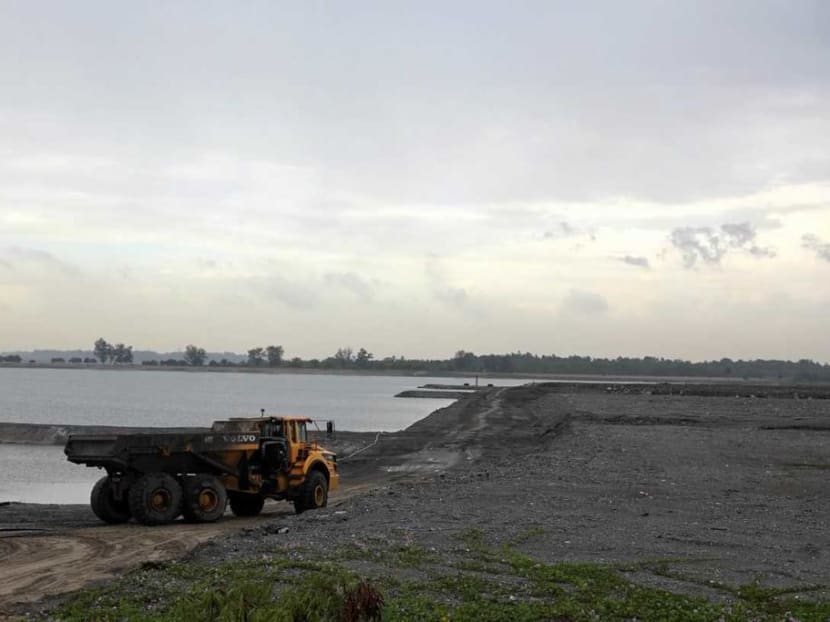Singaporeans generated less waste in 2019, but also recycled less: NEA
SINGAPORE — Singaporeans generated less waste in 2019, its third yearly reduction in waste since 2017. However, they also recycled less last year.

The amount of solid waste generated in Singapore was 7.23 million tonnes in 2019, 460,000 tonnes lower than in 2018.
SINGAPORE — Singaporeans generated less waste in 2019, its third yearly reduction in waste since 2017. However, they also recycled less last year.
According to the latest statistics from the National Environment Agency (NEA), which was made available on its website on Wednesday (April 15), the amount of solid waste generated in Singapore was 7.23 million tonnes in 2019.
This is down 460,000 tonnes from 2018, equivalent to a 6 per cent reduction. Between 2017 and 2018, the waste generated had dropped by 9,000 tonnes.
The amount of waste generated last year was also 280,000 tonnes less than five years before. In 2014, the amount of waste generated stood at 7.51 million tonnes.
The waste generated in both domestic and non-domestic sectors also saw a dip.
For the domestic sector, the waste generated last year was 1.87 million tonnes, down from 2 million tonnes the previous year.
This figure is also a reduction from five years before, when domestic waste made up 2.1 million tonnes.
For the non-domestic sector, the waste generated last year was 5.37 million tonnes, down from 5.70 million tonnes in 2018, but closer to the 5.4 million tonnes in 2014.
The NEA called the reduction in waste a “positive step” in Singapore’s journey to becoming a Zero Waste Nation and to extending the lifespan of Semakau Landfill beyond its projected 2035 deadline.
The Government had declared 2019 as the “Year Towards Zero Waste”, launching a masterplan to reduce the amount of waste among three priority waste streams — electrical and electronic waste, food waste and packaging waste, including plastics.
As part of its plans, the Government also announced its goal to reduce the waste sent to Singapore’s only landfill, Semakau Landfill, by 30 per cent, by the year 2030 so that it can last beyond 2035.
Among the various waste streams, plastic, textile and food saw a drop in the amount of waste generated.
NEA said that this could be due to the efforts of many stakeholders over the past few years to increase awareness on the need to reduce waste.
DROP IN OVERALL RECYCLING RATE
Despite less waste being generated overall, the recycling rate in Singapore dropped from 61 per cent in 2018 to 59 per cent in 2019. Last year’s figure also did not differ much from the recycling rate five years before, which was 60 per cent.
NEA attributed the drop in overall recycling rates to the drop in the recycling rate of paper, which was 44 per cent in 2019, down from 56 per cent the year before.
The agency said that the market for recycled paper was affected by shrinking export markets, as well as reduced demand for printing paper due to increased digitalisation.
“Given that 34 per cent of Singapore's recyclables are exported, the status of the external market and policy of other countries towards recyclables would have a significant impact on our recycling rate,” said NEA on its website.
Recycling rates have also decreased in both domestic and non-domestic sectors.
The recycling rate for the domestic sector last year stood at 17 per cent, a 5 percentage point drop from the previous year.
It was also lower than the domestic recycling rate in 2014, which stood at 19 per cent.
Likewise, the recycling rate for the non-domestic sector last year was 73 per cent, a 2 percentage point drop from the previous year.
The recycling rate for the non-domestic sector in 2014 was not available.
TOP WASTE STREAMS FOR 2019
There was no change to the top five waste streams in 2018 and 2019. They were (in order of largest to smallest amount of waste generated): Construction and demolition, ferrous metal, paper, plastics and food.
Besides the recycling rate for paper and food waste, which saw a 1 percentage point increase in their recycling rates last year, there was no change to the recycling rate of the top five waste streams.
Both construction and ferrous metal continue to be recycled at a rate of 99 per cent, while the recycling rate for plastic remained at 4 per cent.
In 2014, the rate of recycling for both construction and ferrous metal were above 95 per cent. The recycling rate for plastic, however, had been higher at 9 per cent.
HOUSEHOLDS NEED TO STEP UP RECYCLING, SAYS EXPERT
Commenting on the overall reduction in waste generated last year, Ms Pek Hai Lin, the executive director of non-governmental organisation Zero Waste SG, said that this could have been due to measures in place for industries to report on certain types of materials and waste produced. Upcoming laws which will make companies responsible for the collection, treatment and disposal of their products after they have been used could also have played a part.
On the drop in recycling rate, Ms Pek said this could be due to China banning the foreign import of recyclable materials.
In 2018, Singapore exported 30 per cent of its recyclable materials, such as paper, to several countries including China. However, last March, Chinese authorities said that they would cut solid waste imports to zero by 2020 to reduce pollution.
Ms Pek said that Singapore needs to increase the volume and value of its recyclable items.
To this end, households could “step up” sorting recyclable materials to ensure that they are only minimally contaminated before they reach recycling facilities here. Materials which have been contaminated by food or liquid waste typically cannot be recycled.











